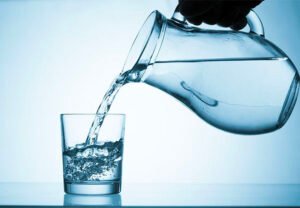
- At current pace, it’ll will take Nigeria 16 years to access potable water for all – UNICEF
By Hassan John
Its value and importance make potable water theoretically readily available to all humans at every point in time. Sadly however, the case is different in Nigeria as the country has been grappling with water deficit for decades.
Though most Nigerian cities are surrounded or near oceans, rivers and streams, residents of those cities don’t have water that is clean enough for human consumption. The lack of potable water in Nigeria has scaled up water-borne diseases in the country.
According to the United Nation Population Fund (UNICEF), 78 million children in Nigeria are at the highest risk from what it described as a convergence of three water-related threats.
They include inadequate water, sanitation, and hygiene (WASH); related diseases; and climate hazards. The Agency also disclosed that in Nigeria, one-third of children do not have access to at least, basic water at home, and two-thirds do not have basic sanitation services. Hand hygiene is also limited, with three-quarters of children unable to wash their hands due to lack of water and soap at home.
As a result, UNICEF noted, Nigeria is one of the 10 countries that carry the heaviest burden of child deaths from diseases caused by inadequate WASH, such as diarrhoeal diseases.
“Nigeria also ranks second out of 163 countries globally with the highest risk of exposure to climate and environmental threats. Groundwater levels are also dropping, requiring some communities to dig wells twice as deep as just a decade ago. At the same time, rainfall has become more erratic and intense, leading to floods that contaminate scarce water supplies,” UNICEF said.
This is even as it further warned that if Nigeria continues at the current pace, “it will take 16 years to achieve access to safe water for all in Nigeria.
“We cannot wait that long and the time to move quickly is now. Investing in climate-resilient water, sanitation, and hygiene services is not only a matter of protecting children’s health today, but also ensuring a sustainable future for generations to come,” it said.
The UN agency advised Nigeria on the need to rapidly scale-up investment in the sector, including from global climate financing, strengthen climate resilience in the WASH sector and communities, increase effective and accountable systems, coordination, and capacities to provide water and sanitation services, and implement the UN-Water SDG6 Global Acceleration Framework.
There is therefore the need for the governments at all levels to act fast in providing access to potable water for all Nigerians regardless of their social status.
“Governments need to develop a plan for increasing political commitment to safely managed drinking water, sanitation, and hygiene, including outreach to leaders at all levels of government and engaging with civil society groups.
“It is crucial to develop clear policy objectives to guide funding and financing decisions for WASH, as well as funding and financing strategies that take into account the needs of different regions and populations.
“It is important to develop a plan for building a stronger, more diverse, and gender-balanced workforce with stronger skills in the WASH sector,” WHO and UNICEF advised in a recent statement.
Responding to questions from our Correspondent, a Jos-based Water and Sanitation expert, Dr. Jonah Isah, expressed concern that most communities including in urban settings don’t have water that is good enough for drinking.
He blamed governments at all levels for not taking the issue of provision of water and sanitation seriously in their states and local governments.
“There is no good drinking water anywhere in Nigeria. You cannot fetch water anywhere in this country and drink it confidently without you having the fear of infection.
“Most Nigerians now rely on water sold by bottle water companies for their use. Even those ones, most of them are not safe for drinking. The worst is the one we call ‘pure water’. Most of them are produced in unhygienic environments.
“Some decades ago, you could see water provided by the government running through the taps in most communities, but this had since fizzled out.
“Most people dig boreholes in their houses in order to access good water. Apart from the fact that water from most of these bore holes are not safe, this also has its environmental implication. “
On the way forward, Dr. Isah called on the government to go back to the drawing board and map out plans how they can return the era of taking the responsibility of making clean water available to the people.


